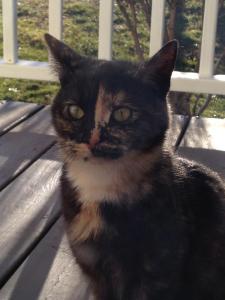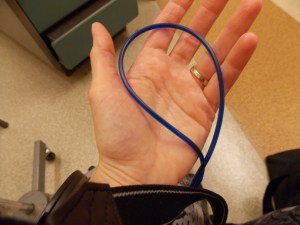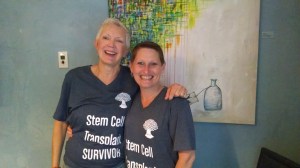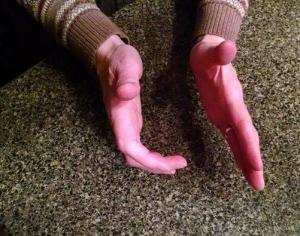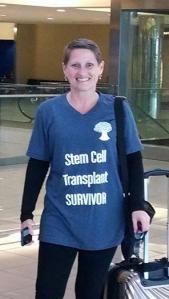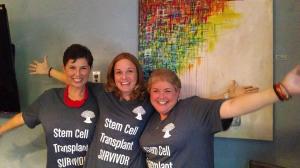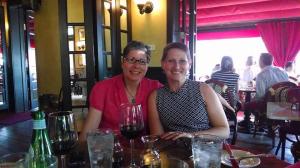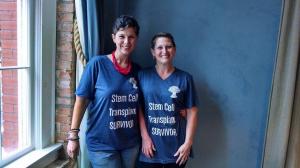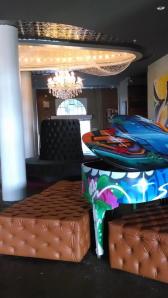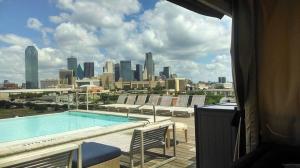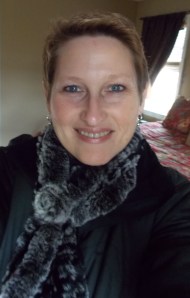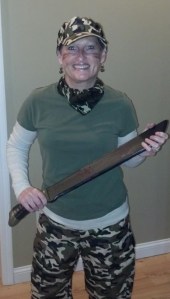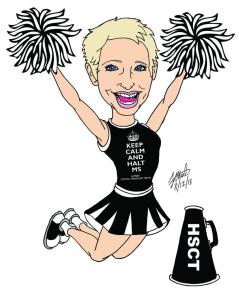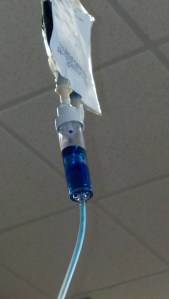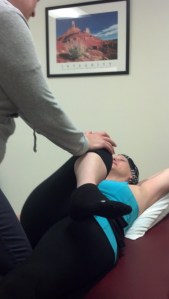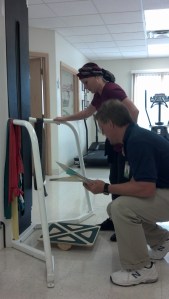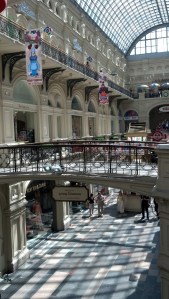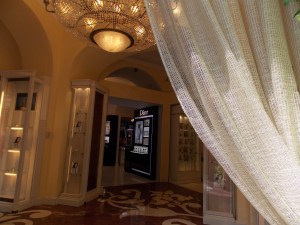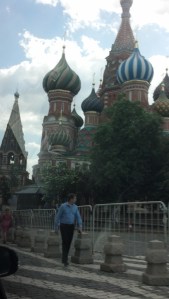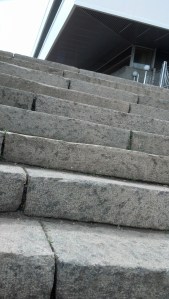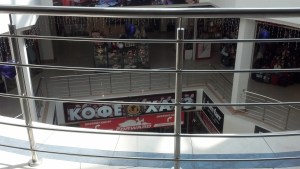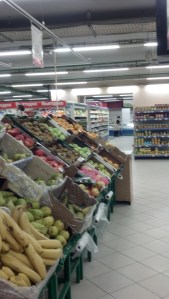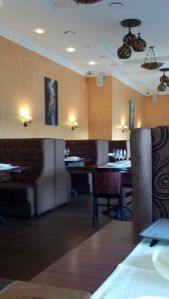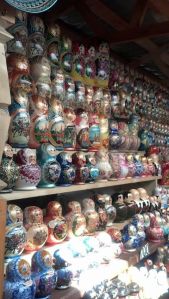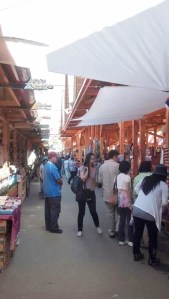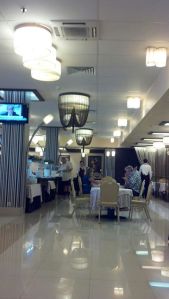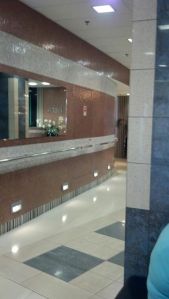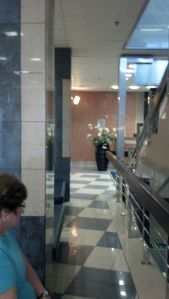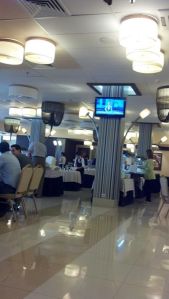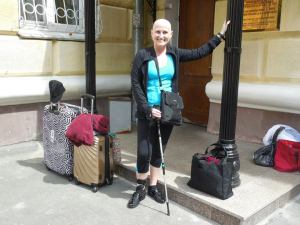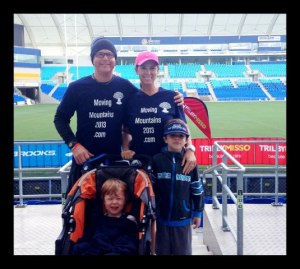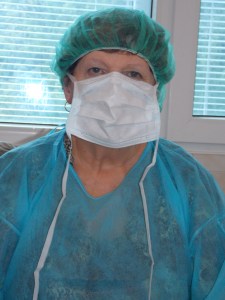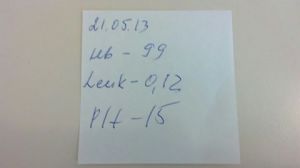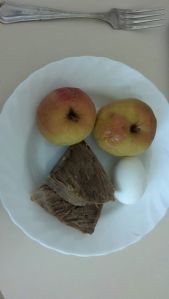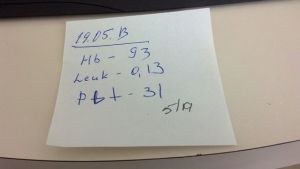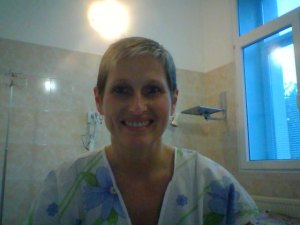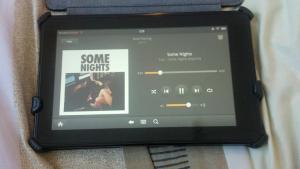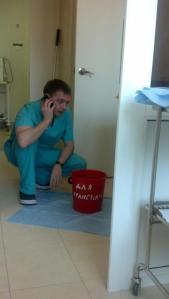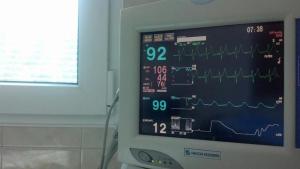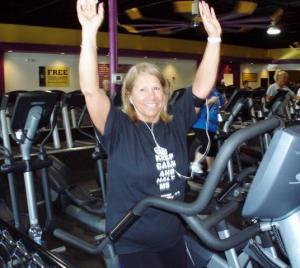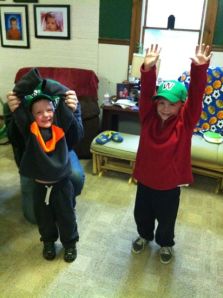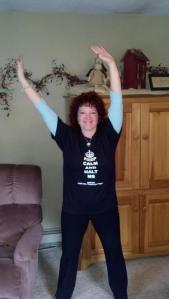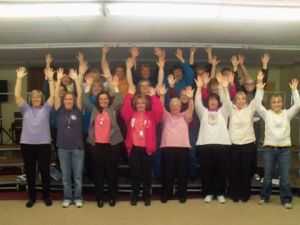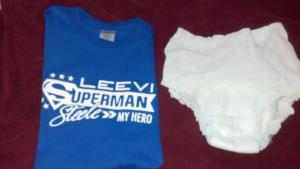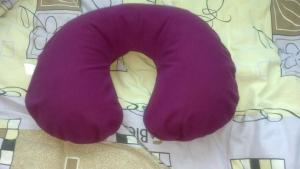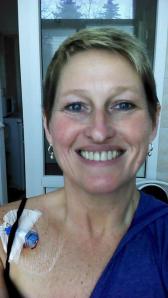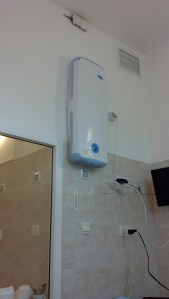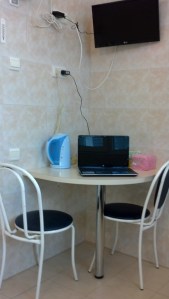
By popular demand (mom has been contacted by many), my mom has put together a recap of travel advice for those traveling with a companion/caregiver or if you are traveling alone. In the meantime, I am working on my own update covering my first week at home (to be posted in the next few days). Here ya go, Mom…
ADVICE FOR THOSE TRAVELING WITH A CAREGIVER/COMPANION , OR TRAVELING ALONE
This is a recap of my Russian experience as an accompanying person with my daughter for her HSCT treatment. As you prepare for your trip, and throughout the entire experience, if you encounter any problem, or have any question, please know that you can contact me at any time via e-mail – or friend me on Facebook (Connie Taylor) and we can message – for solutions to any problem. You will never be alone and we will follow your progress toward this miracle you’re about to experience from day 1 to your return to your home. My e-mail address is: cct41@atlanticbb.net. Please put MS QUESTIONS as the subject line so I don’t delete the e-mail in error.
These are the things the caregiver may be concerned about:
Emotions:
You may feel guilty about the person you’re accompanying going through so many medical procedures, and you’re out there enjoying the scenery. There is no need for guilt. You can be there for them, whenever they need you to be. After I saw the hospital, doctor, and how organized and caring this process is, any guilt I had subsided. Bottom line, you don’t have MS, they do. You can’t fix it. Dr. Fedorenko (“Dr. F.”) and his staff will. When they are in isolation. there is a constant stream of staff coming in to do tests, IVs, injections, etc., so, it’s not as ‘lonely’ as it might appear. They are tired and need rest. I knew she was in good hands and I had total faith In my daughter’s determination, the HSCT process and the care she was going to receive. At that point, I decided to make the most of it – we will never have to do this again. NOTE: I never once experienced any concerns about safety of my person or my property. I never found the people of Russia to be anything but pleasant, friendly and helpful.
Airport to the hotel:
The taxi ride from the airport to the hotel is anywhere from 1-2 hours depending upon which airport you fly into. We flew into SVO. It is a beautiful airport and their staff was very accommodating. We did arrange with our airline, Delta, for Brooke to have a wheelchair. They provide you with an assistant who will help you navigate through the airport and allowed us to avoid all of the long lines at customs. Basically, you are given VIP priority. Dr. Fedorenko arranges for you to be picked up at the airport upon your arrival in Moscow and deliver you directly to your hotel. The cost of that taxi was $130. Hang onto your hats when you get into the taxi. Driving in Moscow is fast and furious and the lines on the road are nothing more than a suggestion.
Hospital:
Dr. Fedorenko is interested in the patient’s care, comfort and results – not money. Dr. F speaks English, e-mails in English, is taking lessons, and his staff will as well, to improve English. He will answer any and all questions that you may have about the patient that you are accompanying. Dr. F’s staff is kind, pleasant, organized, efficient and well-trained. He is involved in every aspect of your treatment, right down to making sure that your fridge is fully stocked with protein drinks. The hospital’s protocol to insure an infection-free facility is amazing and followed faithfully by the staff. Cleanliness is a top priority. The hospital may appear “old-school”, not full of bells and whistles, but they get the job done and they get results The caregiver is always treated as a guest, permitted to share any/all meals with the patient, made to feel comfortable, and never made to feel as if you’re in the way.
I shared some meals but found that some of the Russian foods were something I could not get used to. They’re healthy meals and we should all take a lesson from them. Brooke learned to eat most things. Refusing to eat would delay HSCT progress and goals. The patient must go with the program.
Security and transportation to/from hospital:
Security at the hospital is tight. You can enter only via the security building and showing the pass provided by Dr. F. You are given a paper with the taxi company’s phone number, hospital address, and Dr. F’s mobile phone on it. You show that to the concierge at the hotel and they know to call a taxi. The taxi driver must check in with the concierge before leaving with you so it is completely safe. You may need to show him your paper with the hospital address on it. The fee to the hospital is one set by the hotel/taxi people. It is 600 rubles – $ 18+ US Dollars.
There is a high, wrought iron fence around the entire hospital property and no one can enter without the pass. Dr. F. is the only one who can call the taxi company for a cab to take you back to the hotel. You tell him what time you want to leave, and he will schedule it and tell you when they will be there. They will pick you up outside the security building. You don’t need a pass to leave the property but must go through the security building again to get out. The taxi he calls must have the number 956 (part of their phone number) on the side of the vehicle. You can get a business card at the hotel desk with the address of the hotel on it. You just say VEGA (pronounced like Vegas without the S) and show the card so they know for sure where you want to go. The fee for this ride can vary but is lower than the hotel due to an agreement with the hospital. It can be from 300 to 400 rubles – $ 9.00 to $12.00.
Patient:
The patient’s attitude is a huge part of the battle. You both should always “keep your eye on the prize”-to leave MS in Russia. A positive outlook, cooperation with the doctor and nurses, accept your surroundings and embrace the opportunity to do this as a blessing.
The facilities surrounding the patient are quite nice. They are clean, private, they have a fridge and a microwave oven. Dishes are kept in the patient’s room and are used only by that patient throughout the procedure. Disposable paper products are not readily used in Russia anywhere.
Between medical procedures, books, electronics, and much-needed naps the patient will have a lot to fill the day. WI-FI is available in the room.
Everyone is different. Some patients required pain meds, Brooke never did, and with each patient the staff develops new ways to keep undesirable reactions to a minimum.
Dr. F’s experience with HSCT has grown in leaps and bounds, he knows what works to relieve chemo nausea, pain, infection, etc. He has tweaked the necessary medications to make this process successful and without distress to the patient. These meds protect the gastric system, liver, kidneys, etc., ensuring the best results possible.
Communication/Electronics:
As the person on the outside, these items were my greatest challenge – but thanks to electronics were made easier with specialized APPs available for your phone, tablet, or whatever electronic device you bring with you.
I did not bring a phone, nor did I need one. Brooke also didn’t buy a SIM card for her phone to get service in Moscow, but instead used a APP called Viber on her Smartphone to talk and text to home and is free to use. It worked very well she didn’t have to sign up for international talk and text with her phone carrier, Verizon. I Skyped with Brooke and with my family in Pennsylvania. I had a Nexus 7 tablet. I loaded a currency conversion APP that works without WI-FI, and a translation APP from ECTACO (find it on-line) that also works WITHOUT WI-FI. Google has a translation APP but needs WI-FI which doesn’t help you in the grocery store, flea market, or asking directions. The ECTACO costs $60+ dollars but was worth every cent. Facebook was a constant contact between home, the hospital and the world.
I also had a Nikon camera with me at all times. There was always something interesting to take photos of. I got a special connector from Amazon which connects the camera to my Nexus 7 tablet and uploads the pictures into a Gallery on my tablet. I didn’t take a computer to upload them into. This worked wonders. Brooke would tell me what she was looking for as a special souvenir for someone, I would go to the market and take pics of various ones, upload them into the Nexus, Facebook them to Brooke, she would pick the one she wanted, and I would go to the market the next day and buy it. Worked great!!
Currency conversion:
Your currency conversion APP will be your best friend – but eventually you will be doing it in your head. A ruble value varies day to day, but on the average it is 31 cents. When a vendor told me the price of something I mentally multiplied it by 3 and added a few dollars to know what the US Dollars equivalent was. It’s confusing because rubles have zeros everywhere and you think you’re spending tons of money but you’re not. Ex: 1,000 = $ 30.00. 500 ru = $ 15 100 ru = $ 3.00. You get it. At the market EVERYONE will bargain for the price with you. If you see something you want, decide how many US Dollars it’s worth to you, convert that to rubles and start the bargaining. Pause while you’re calculating and the price starts going down because they think you’re going to walk away. I got very good at it – you will too.
Atm Machine / Bank Fees:
There are ATM machines in the lobby of the hotel. Only one has an English option. You use your bank card, then wait, (I didn’t but I learned) and a choice of English will come up. Your bank will charge you a fee each time you use the machine just like in the States. IMPORTANT: Before you go to Russia, talk to your bank and make them aware that you will be using an ATM in Russia during a certain time. They will put a note on your account so they don’t think your identity has been stolen. Find out what your bank’s international ATM withdrawal limits (withdrawals per day, amount per day) and their fee to you for using an international ATM. There is a place in the lobby to get large rubles broken down into smaller denominations for shopping. I didn’t like using coins but the grocery stores and deli prefer it. You can use a credit card at the grocery store if you buy a lot of items.
SUPER IMPORTANT:
Find out from your bank if they charge an international transaction fee for when you transfer money to the hospital from your US account. Some banks charge 10% – that’s $4,000 !!! Also, the hotel bill, if it’s held with your credit or debit card, is there a bank fee for that? Again, we found it was going to be 10%. Some banks have no fee. Check it out!! We began drawing cash out of the ATM each day so we could pay the hotel bill in cash and not incur the 10% fee. Banks vary GREATLY. To avoid any fees when paying the hotel bill, pay for the entire balance in cash (rubles).
Language:
This was definitely the most difficult part of the trip – but manageable. The most important Russian word you must learn is Thank You (pronounced “spuh-see-buh” in Russian). Here, again, your translation APP is invaluable, unless you’ve been more adept than I, and have learned the key Russian phrases. If you want to know the price of something just ask “rubles ?”. Charades work sometimes. Very few people speak English, some say they do but they don’t. If you order room service first ask “English ?” And they will put someone on who speaks a little.
Hotel:
We stayed at the Best Western Vega Ru, the closest hotel to the hospital. An important item I found out the hard way. When you enter your hotel room you insert your room card/key in the device on the wall which turns on the power in your room. Any time you leave, be sure to take that card with you or you won’t be able to get back in. BUT if you leave a tablet or phone on the charger, this will turn the power to the charger off and it won’t be charging. NOTE: There is one electrical power strip that stays on at all times for the purpose of chargers. It’s located beside the desk in most rooms.
Security: Absolutely no concerns. There is a guard at the bank of elevators who, until he’s familiar with you, will ask to see your sign-in paper that shows your room number. When you get to your floor, your key will get you from the elevator bank and onto the floor to access your room. Each floor has a specific key so people cannot roam from floor to floor. And finally you will use your key for the door to your room, once inside put it in the wall device to turn on the power and you’re good to go.
There are 3 TV stations in English. They are primarily news shows and documentaries. They are channels 20, 21, and 22. Their news is quite refreshing – they actually report facts with no innuendo or interpretation thrown in. It’s world news and you find out things are messed up everywhere, not just where you live. J
If you have trouble with WI-FI going down, there is a number for IT in the front of the Hotel Services book on the desk. If they offer to move you to another room for better service, tell them you want the IT guy to check the new room to make sure service is OK there before you move.
This hotel, made my trip the positive experience it was. It is as “Americanized” as possible and it made my life so much better. All signs in the hotel also had English on them.
Food:
Always mindful that the bulk of our expenses were due to generous donations from friends and family, I tried to be as thrifty as possible. After finding that on a daily basis I could not eat the hospital food (even though it was free, the cab ride each day added up) – I searched for a more cost-effective way. The hotel has an extensive breakfast buffet from 7 to 11 every day. It is 500 rubles – $ 16.00. Pricey – but I ate there at 10:30 some days and never needed anything more the rest of the day except maybe a snack from the grocery store – cookies, crackers, cheese – etc. It actually saved a lot of money and was excellent with a huge variety of choices. All items were labeled with English also.
There is a mall, by the name of AST, within walking distance of the hotel – where there is a grocery store on the ground floor. I bought cheese and crackers there, as well as chocolate and cookies. KFC is on the 3rd floor. The prices are low compared to US. There is a deli very close to the hotel – open 24 hrs. per day – got my Coca-Cola there…cheaper than the hotel. A restaurant Brooke and I went to that was excellent is located beside the hotel (exit the front entrance of the hotel and make a right, then head across the plaza. It is straight ahead. It will say Pectopah on the left and – Sole Mio in the center and has a sunrise graphic. It has all kinds of wonderful, fresh food, prepared from scratch while you wait, and they have Italian pizza (take out if you like) that is to die for. All restaurants have menus with English translations on them. At KFC you can ask for the English menu and point to what you want. There are 3 restaurants in the hotel. They’re a la carte so it can get expensive but portions are large. Anything like ketchup, sour cream, mustard, etc. you must ask for and pay extra.
Well, that’s about it. There’s a lot more but these are the basics. Don’t forget my offer to help you along the way- anything from getting prepared to coming home with miracle results – you will never be alone there.
IF YOU ARE A PATIENT TRAVELING ALONE:
The A.A. Maximov Hospital, Moscow, is the perfect facility to accommodate patients traveling alone. You will be taken care of from your admission to the hospital until your departure. DO NOT be concerned that you are traveling alone. It is a non-issue.
Tips:
– Make certain that, if you need it, you arrange for a wheelchair at the airport of your departure and at your airport of arrival in Moscow.
– A bellhop (they are not on duty until 8 a.m.) will be available at the hotel to transport your luggage to your room. If you call the front desk when you are ready to head to the hospital, they will also arrange for your baggage to be taken to the lobby.
– Contact the Concierge ahead of time (night before) to arrange for your taxi from the hotel to the hospital. That way, it will be ready for you and on time. Make sure that you have the name, address and phone number of the hospital (in Russian) with you to show to the taxi driver. Dr. Fedorenko supplies this to you via e-mail. If he hasn’t yet, contact him closer to your date of admission. Here’s a copy in case you need it in a pinch:
Москва, Ул Нижняя Первомайская 70, Национальный медико-хирургический центр им. Пирогова
Клиника гематологии и клеточной терапии им. Максимова
Федоренко Денис Анатольевич Моб +7-915-290-00-67
– If you have a free day or so before your admission, and if you haven’t already brought them with you, try to get out to a deli or grocery store to stock up on any snacks you might want while hospitalized. Salt, pepper and cinnamon are must-have items, as well as any other condiment that you prefer (ketchup, mustard, etc.).
PS: I have tailored this to the US audience as far as money – I’m not familiar with pounds or Euros – but I am aware that HSCT patients are headed to Moscow from all across the globe, so I hope you all find this information useful.
If you have any additional questions, please feel free to contact me at the e-mail address above, or Brooke on here or on Facebook.
Connie Taylor, aka Moscow Momma, mother of Brooke Slick who left her MS in Moscow

The original “Moscow Momma”!





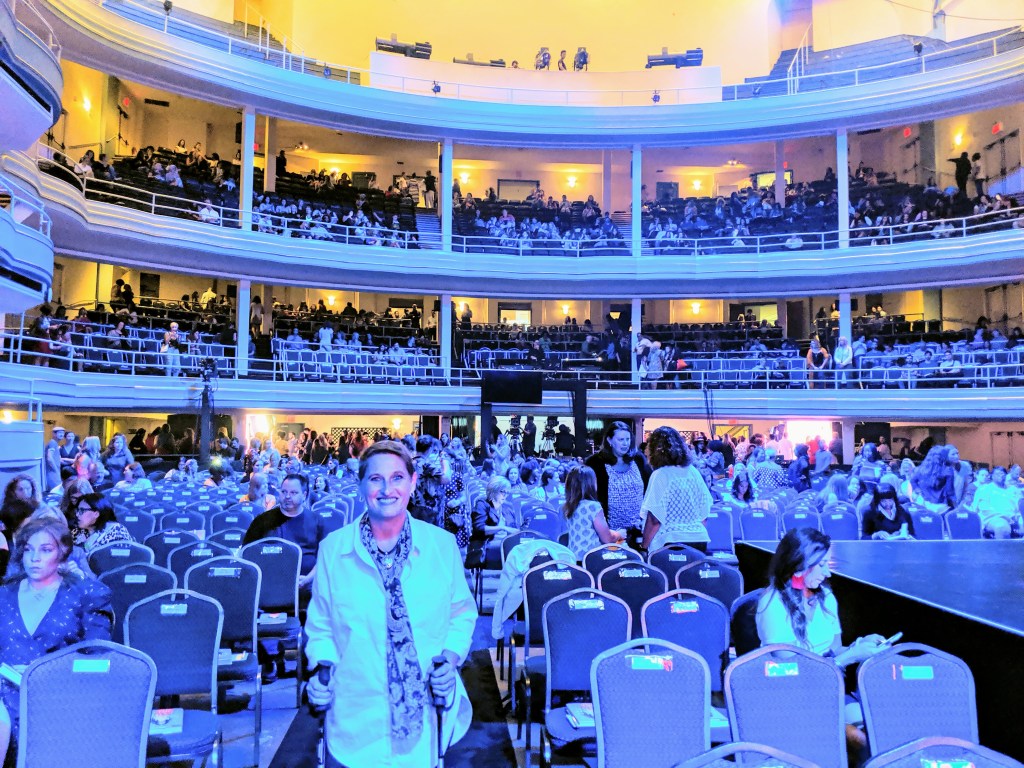
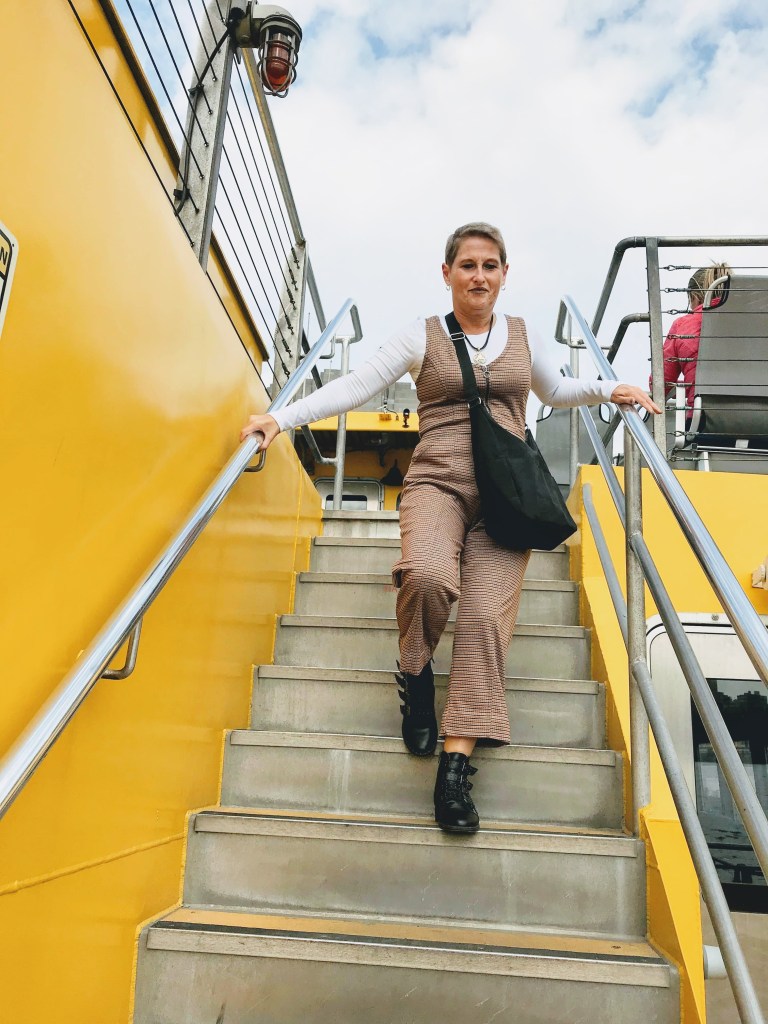

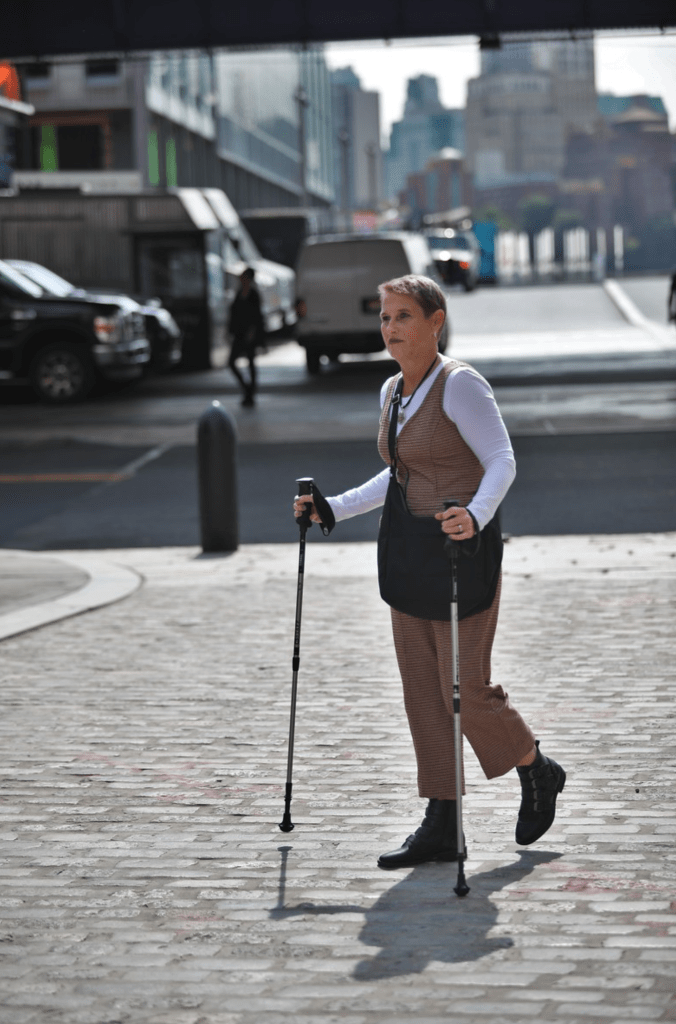


















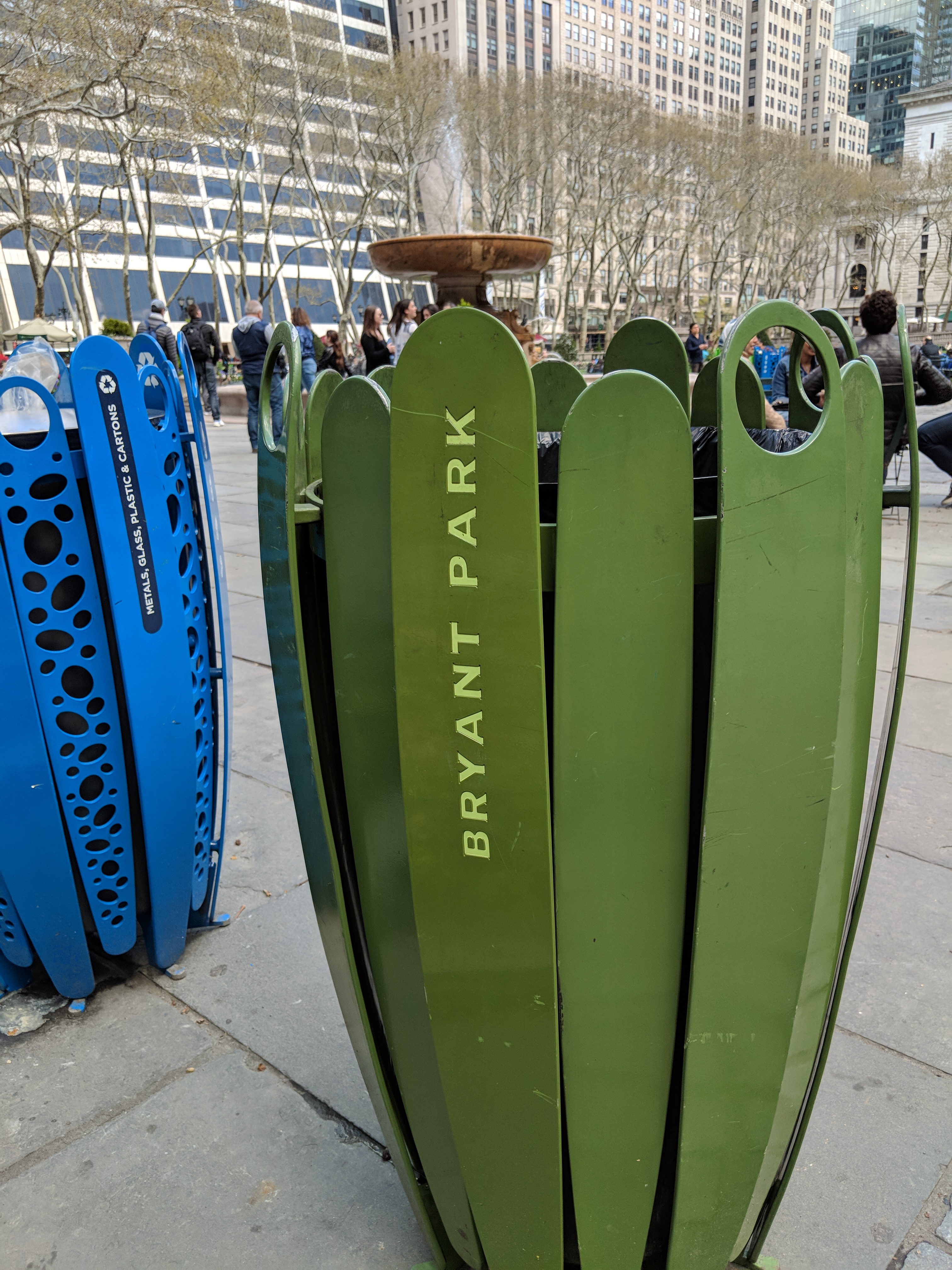


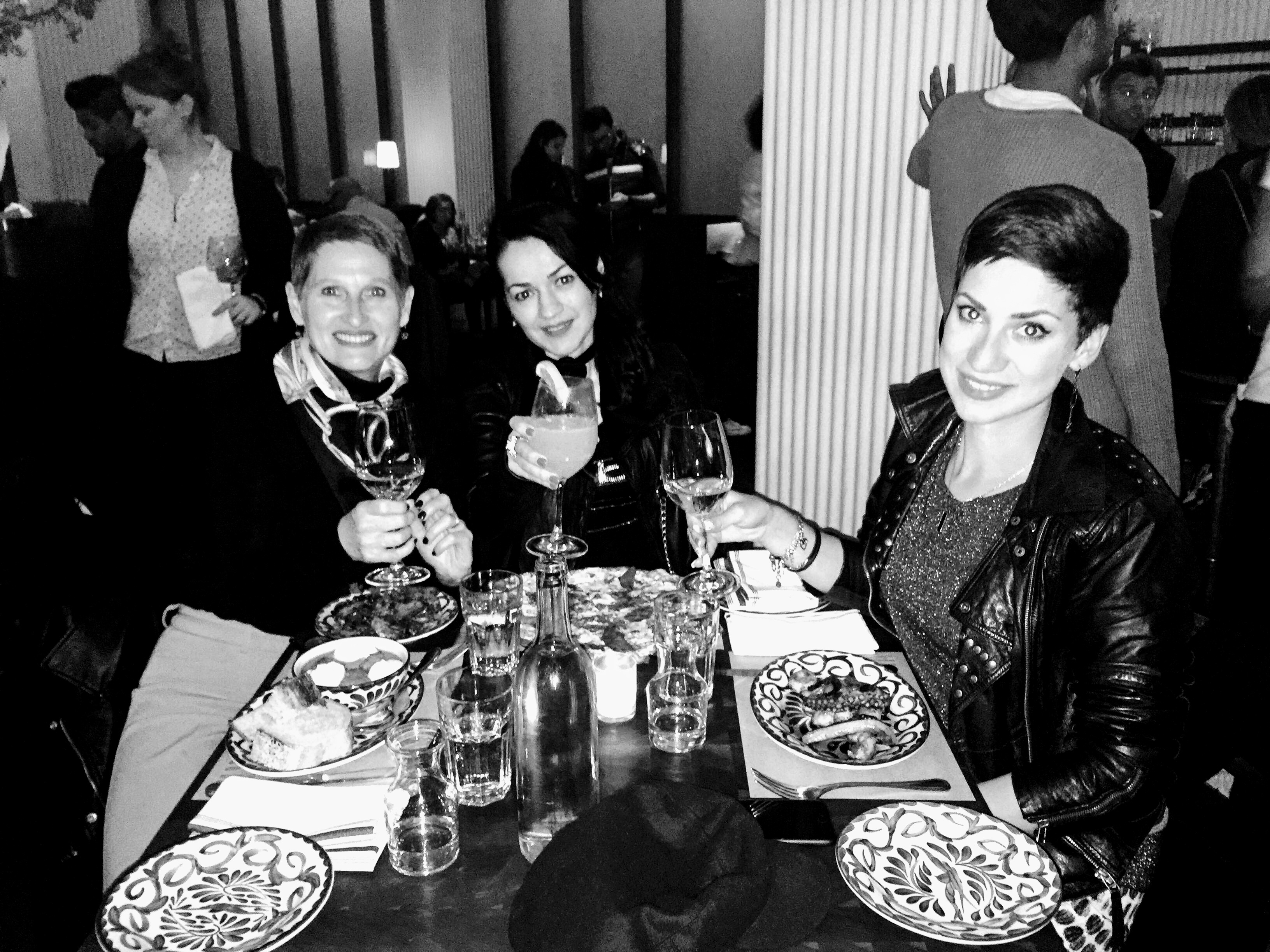





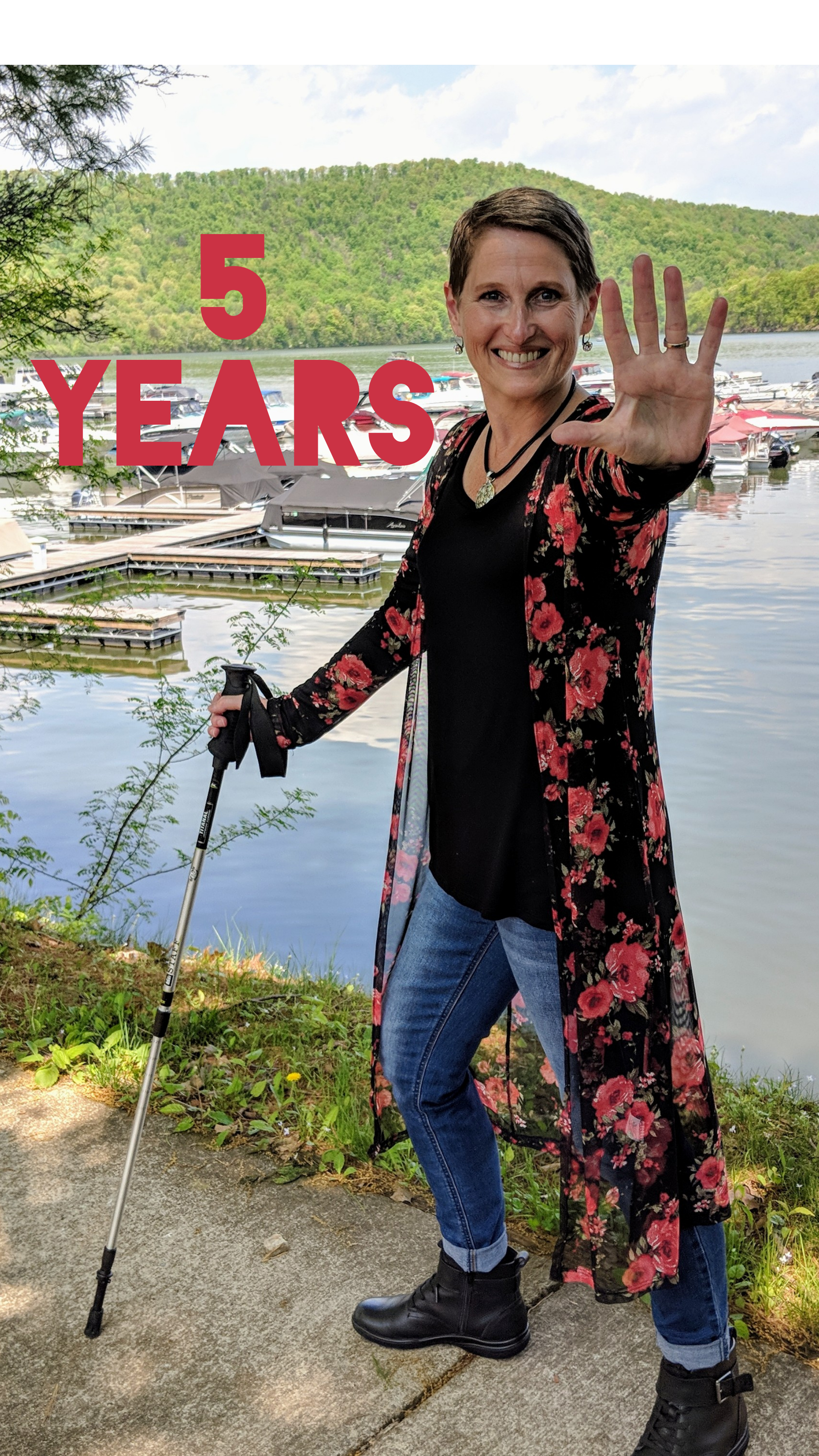

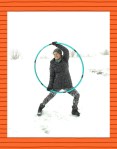
 Drama
Drama RETURN HOME. I KNOW YOU CAN’T WAIT TO START. YOU FEEL BETTER AND HAVE MORE ENERGY THAN YOU HAVE IN YEARS, THE REFLEXES IN YOUR FEET AND KNEES ARE REACTING NORMALLY, AND YOU ARE SO ANXIOUS TO BE ABLE TO SAY “LOOK WHAT I CAN DO!”…NOT SO FAST.
RETURN HOME. I KNOW YOU CAN’T WAIT TO START. YOU FEEL BETTER AND HAVE MORE ENERGY THAN YOU HAVE IN YEARS, THE REFLEXES IN YOUR FEET AND KNEES ARE REACTING NORMALLY, AND YOU ARE SO ANXIOUS TO BE ABLE TO SAY “LOOK WHAT I CAN DO!”…NOT SO FAST. YSICAL THERAPY. REMEMBER WHEN YOU FIRST STARTED WALKING FUNNY AND YOUR FOOT, LEG AND HIPS STARTED TURNING OUT WHILE YOU WALKED TO KEEP YOU FROM FALLING? DO YOU REMEMBER HOW PAINFUL THAT WAS? WELL, NOW, YOU HAVE THE CHANCE TO HAVE IT ALL SHIFTED BACK INTO PLACE, BUT IT’S GOING TO MAKE YOUR PREVIOUS PAIN SEEM LIKE A WALK IN THE PARK. YOU’RE GOING TO BE PUSHED TO YOUR LIMIT, AND SOMETIMES, YOU’LL PUSH TOO HARD AND REGRESS. GOOD ADVICE WILL COME FROM AN HSCT BUDDY, KEITH. HE’S A CHIROPRACTOR FROM CANADA. HE’LL SUGGEST THAT YOU CUT YOUR ONE HOUR PT SESSIONS TO 30 MINUTES. AT FIRST, YOU’RE GOING TO FEEL LIKE THAT WOULD BE THE EASY WAY OUT, BUT, YOU’LL QUICKLY COME TO UNDERSTAND THAT MORE PAIN, DOESN’T ALWAYS MEAN MORE GAIN AND YOU WILL REACH ALL OF YOUR GOALS 5 MONTHS EARLIER THAN EXPECTED. BOOM!
YSICAL THERAPY. REMEMBER WHEN YOU FIRST STARTED WALKING FUNNY AND YOUR FOOT, LEG AND HIPS STARTED TURNING OUT WHILE YOU WALKED TO KEEP YOU FROM FALLING? DO YOU REMEMBER HOW PAINFUL THAT WAS? WELL, NOW, YOU HAVE THE CHANCE TO HAVE IT ALL SHIFTED BACK INTO PLACE, BUT IT’S GOING TO MAKE YOUR PREVIOUS PAIN SEEM LIKE A WALK IN THE PARK. YOU’RE GOING TO BE PUSHED TO YOUR LIMIT, AND SOMETIMES, YOU’LL PUSH TOO HARD AND REGRESS. GOOD ADVICE WILL COME FROM AN HSCT BUDDY, KEITH. HE’S A CHIROPRACTOR FROM CANADA. HE’LL SUGGEST THAT YOU CUT YOUR ONE HOUR PT SESSIONS TO 30 MINUTES. AT FIRST, YOU’RE GOING TO FEEL LIKE THAT WOULD BE THE EASY WAY OUT, BUT, YOU’LL QUICKLY COME TO UNDERSTAND THAT MORE PAIN, DOESN’T ALWAYS MEAN MORE GAIN AND YOU WILL REACH ALL OF YOUR GOALS 5 MONTHS EARLIER THAN EXPECTED. BOOM!

 HORT YEARS, THE RUSSIA FORUM’S MEMBERSHIP WILL SOAR TO OVER 2,000 MEMBERS FROM ALL OVER THE WORLD. YOU AND YOUR COMRADES WILL DO EVERYTHING YOU CAN TO MAKE IT AN ORGANIZED, INFORMATIVE SANCTUARY FOR THOSE SEEKING HSCT IN MOSCOW. YOU WON’T THINK SO IN THE BEGINNING, BUT, EVENTUALLY, YOU’LL HAVE TO WALK AWAY. YOU WILL BEGIN TO SLOWLY TURN OFF NOTIFICATIONS TO ALL FORUMS EXCEPT RUSSIA. YES, THERE WILL BE MANY. THE STAMPEDE FOR HSCT, WILL BRING OUT THE BEST AND THE WORST IN PEOPLE. THE DRAMA THAT YOU WITNESS WILL WEAR YOU AND YOUR PATIENCE DOWN. LIFE AND A BUSINESS VENTURE WILL FILL YOUR DAYS AND YOU WILL ABLE TO GET BACK TO LIVING, JUST AS YOU HAD HOPED PRE-TRANSPLANT. THAT’S WHY YOU DID THIS. REMEMBER? TO GET YOUR LIFE AND YOUR FUTURE BACK. THERE WILL BE OTHER ABLE VETERANS IN THE WINGS WHO COULD MANAGE THE RUSSIA FORUM, BUT, EVEN AT ALMOST 3 YEARS OUT, YOU’LL HAVE A TOUGH TIME FINDING THE PERFECT FIT AND WILL STRUGGLE WITH LETTING GO. BUT YOU WILL…WHEN IT FEELS RIGHT.
HORT YEARS, THE RUSSIA FORUM’S MEMBERSHIP WILL SOAR TO OVER 2,000 MEMBERS FROM ALL OVER THE WORLD. YOU AND YOUR COMRADES WILL DO EVERYTHING YOU CAN TO MAKE IT AN ORGANIZED, INFORMATIVE SANCTUARY FOR THOSE SEEKING HSCT IN MOSCOW. YOU WON’T THINK SO IN THE BEGINNING, BUT, EVENTUALLY, YOU’LL HAVE TO WALK AWAY. YOU WILL BEGIN TO SLOWLY TURN OFF NOTIFICATIONS TO ALL FORUMS EXCEPT RUSSIA. YES, THERE WILL BE MANY. THE STAMPEDE FOR HSCT, WILL BRING OUT THE BEST AND THE WORST IN PEOPLE. THE DRAMA THAT YOU WITNESS WILL WEAR YOU AND YOUR PATIENCE DOWN. LIFE AND A BUSINESS VENTURE WILL FILL YOUR DAYS AND YOU WILL ABLE TO GET BACK TO LIVING, JUST AS YOU HAD HOPED PRE-TRANSPLANT. THAT’S WHY YOU DID THIS. REMEMBER? TO GET YOUR LIFE AND YOUR FUTURE BACK. THERE WILL BE OTHER ABLE VETERANS IN THE WINGS WHO COULD MANAGE THE RUSSIA FORUM, BUT, EVEN AT ALMOST 3 YEARS OUT, YOU’LL HAVE A TOUGH TIME FINDING THE PERFECT FIT AND WILL STRUGGLE WITH LETTING GO. BUT YOU WILL…WHEN IT FEELS RIGHT. THERE ARE A FEW WITH WHOM YOU’LL BECOME VERY CLO
THERE ARE A FEW WITH WHOM YOU’LL BECOME VERY CLO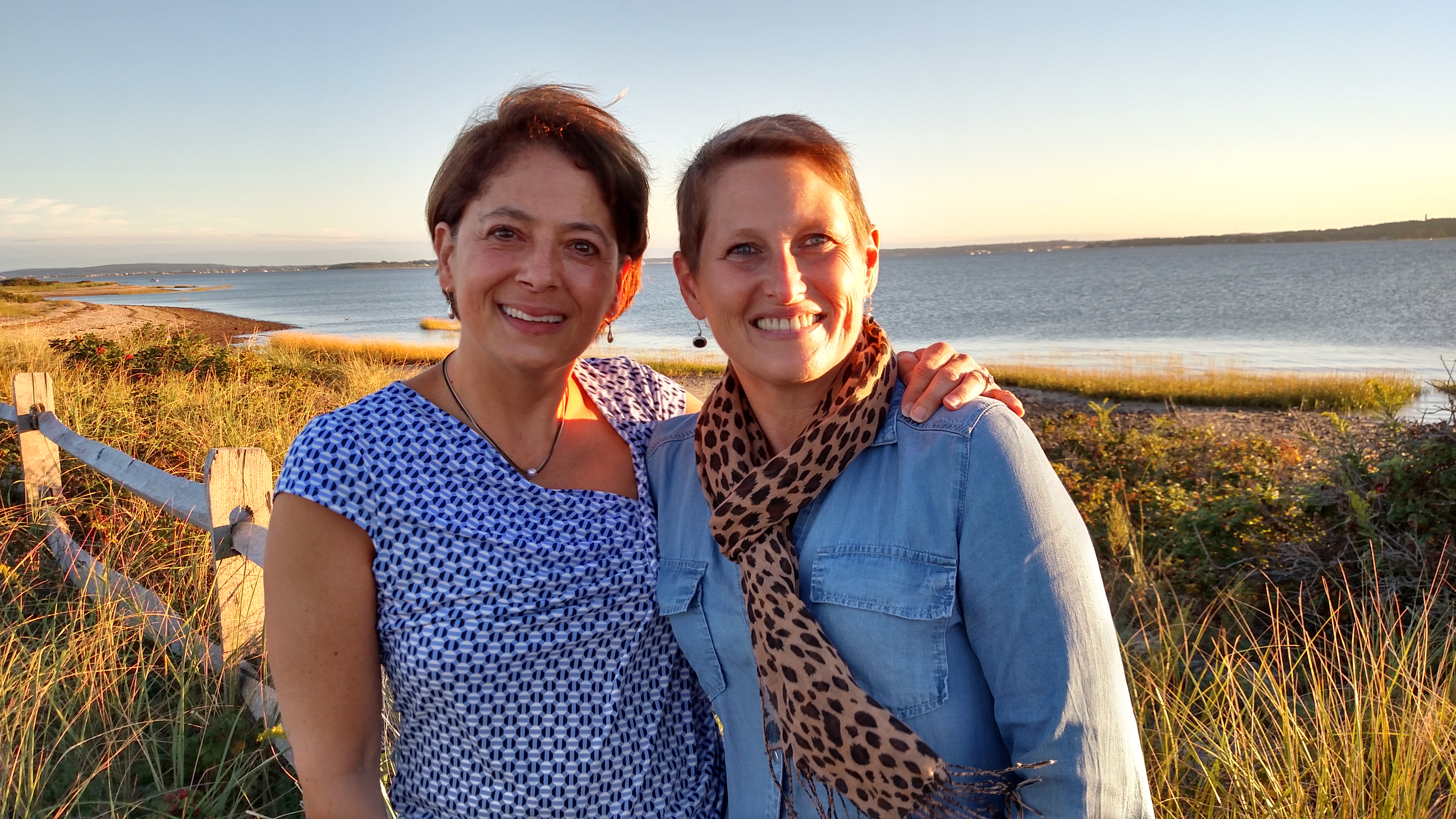 SE. LISA, TAMMY, KRISTY, VICKI, AND TONI (WHO’S A NON-SOFA WHO HAD HER HSCT IN GERMANY) ALONG WITH A HANDFUL OF OTHERS…THEY’RE LIKE THE SISTERS YOU’VE NEVER HAD. HSCT THREW YOU IN EACH OTHER’S PATH, BUT THE SIMILAR SENSE OF HUMOR, QUICK WIT, STRENGTH AND LOYALTY THAT YOU ALL SHARE HAVE CEMENTED LIFELONG FRIENDSHIPS. YOU’LL ALWAYS BE ONE PRIVATE MESSAGE AWAY FROM A HUGE BELLY LAUGH, OR A SHOULDER TO CRY ON. YOU’D DO ANYTHING FOR EACH OTHER AND WILL STAND IN EACH OTHER’S DEFENSE, UNCONDITIONALLY. PRICELESS.
SE. LISA, TAMMY, KRISTY, VICKI, AND TONI (WHO’S A NON-SOFA WHO HAD HER HSCT IN GERMANY) ALONG WITH A HANDFUL OF OTHERS…THEY’RE LIKE THE SISTERS YOU’VE NEVER HAD. HSCT THREW YOU IN EACH OTHER’S PATH, BUT THE SIMILAR SENSE OF HUMOR, QUICK WIT, STRENGTH AND LOYALTY THAT YOU ALL SHARE HAVE CEMENTED LIFELONG FRIENDSHIPS. YOU’LL ALWAYS BE ONE PRIVATE MESSAGE AWAY FROM A HUGE BELLY LAUGH, OR A SHOULDER TO CRY ON. YOU’D DO ANYTHING FOR EACH OTHER AND WILL STAND IN EACH OTHER’S DEFENSE, UNCONDITIONALLY. PRICELESS.





